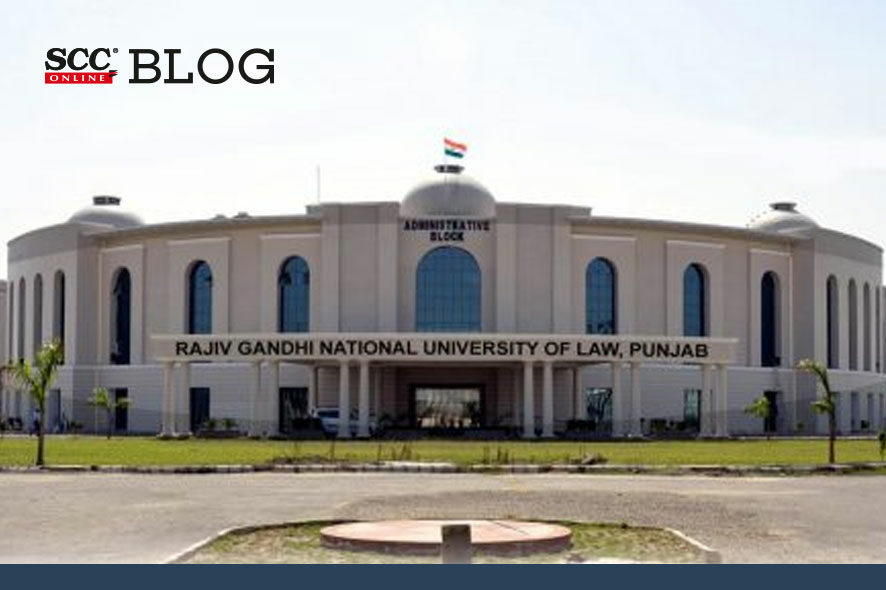About RGNUL, Punjab
Rajiv Gandhi National University of Law (RGNUL), Punjab, was established by the State Legislature of Punjab by passing the Rajiv Gandhi National University of Law Punjab Act, (Punjab Act No. 12 of 2006). The Act incorporated a University of Law of national stature in Punjab, thereby fulfilling the need for a Center of Excellence in legal education in the modern era of globalization and liberalization.
About Dr. P.C. Markanda Chair
Late Advocate Dr. P.C. Markanda was one of the leading arbitration lawyers in India. He was popularly known as the Father of Indian Arbitration. To carry forward his legacy and vision, RGNUL has set up Dr. P.C. Markanda Chair on ADR. The objective of the Chair is to set up RGNUL as a hub of Arbitration and to render training and technical assistance by way of setting up training institutes for Arbitration and Mediation. To conduct meaningful research in the areas of ADR and provide consultancy by way of introducing legal start-ups and collaborations in the country. To impart basic education by way of initiating new degree, diploma and certificate courses by uplifting the core principles and ethics behind ADR.
About Centre for Alternative Dispute Resolution
The Centre for Alternative Dispute Resolution (CADR) has been established to promote students’ and researchers’ interest in Alternative Dispute Resolution, constituting dispute resolution methods like Arbitration, Negotiation, Mediation and Conciliation. These methods gained momentum in the country in the past few decades. ADR mechanisms have become a part of the Indian justice delivery system. CADR endeavours to promote and develop ADR as a vehicle of socioeconomic and political justice. The ultimate objective of the Centre is to strengthen the ADR mechanism in the country by emerging as a platform for students to further their interests in the field. A strong team of teachers and students is working towards achieving this end. CADR has not limited its vision to law students and scholars alone, rather it has a greater objective of making the common masses aware of ADR.
SUB-THEMES
-
ADR – Developments in the Post Covid-19 Era
-
Arbitration v. Litigation
-
ADR, Artificial Intelligence and Technology
-
ADRs in Industrial Dispute and Labour Law
-
Cross Border Disputes and International Arbitration
-
Arbitrability of Aviation and Space Disputes
-
E- Environment Social Governance (ESG) & International Arbitration.
-
ADR in Inter-Country Adoption
-
Lok Adalats & Future of Lok Adalats
-
ADR and Merger and Acquisitions
-
ADR and Consumer Disputes in India
-
Significance of ADR for Scheduled Tribes
-
ADR in Real Estate Disputes in India
-
ADR in Banking Sector
-
ADR in Conflict Management
-
ADR: A Tool in the Matrimonial Disputes
-
ADR: A Tool in Promoting Ease of Doing Business in India
-
ODR (Online Dispute Resolution)
-
Efficacy of ADR in the Contemporary Judicial System
-
Mediation in Civil Disputes
-
Mediation in Employment Disputes
-
Mediation and the effective role of lawyers
-
Role of Professional Mediators
-
International Commercial Arbitration: Challenges
-
Arbitral Seat: Key Considerations
-
Challenges before the Enforcement Agencies in ADR
-
Critical Analysis of Arbitration and Conciliation Act, 1996
It is proposed that the selected papers will be published in a special volume in the form of an edited book as a conference proceeding with an ISBN Number.
SUBMISSION GUIDELINES
-
Abstract: 300-500 words
-
Paper: 3000 – 5000 words (excluding references).
-
Submission below or above the word limit shall not be considered.
-
Citation style: OSCOLA. (4th Edition)
-
Font: Times New Roman; Font size-12; Spacing- 1.5.
-
A cover page with the title of the Essay, name and affiliation of the author/co-authors shall be attached.
-
Submit the research paper as a Microsoft Word document (.doc or .docx).
-
Co-authorship is permitted up to a maximum of two authors.
-
Submissions need to be original. Plagiarism shall result in disqualification.
-
Email for submissions: events@rgnul.ac.in
IMPORTANT DATES FOR SUBMISSION
Abstract – 5th April 2023
Full paper & Registration fees- 20th April 2023
FEES (Inclusive of GST)
Students: 708/-
Teachers: 1180/-
Co-Author: 1770/- Online presentation: 1416/-
Payment link for Fees and Accommodation: https://lsacademia.in/lsa_rgnul/eventPortal/loginFrom.jsp
-
The conference would be held in Hybrid Mode.
-
Fees once paid is not refundable
ACCOMMODATION (Inclusive of GST)
Double occupancy (Hostel)- 590 INR/-
Single Occupancy (Guest House)- INR 2124/-
Double Occupancy (Guest House)- INR 1180/-
STUDENT CONVENOR
Mr. Rachit Somani Contact No: 6376006259
Email: events@rgnul.ac.in
To know more click on Annual Seminar Brochure






